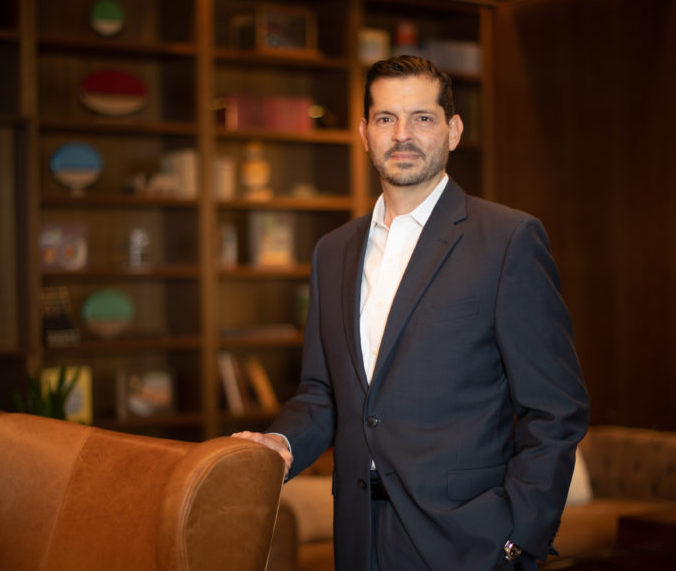Premium Subscriber Content
As the leader of a team providing legal support and counseling for LyondellBasell’s sales in the Americas, Andrew Gratz oversees the review and negotiations of contracts and joint venture arrangements that account for $20 billion in annual revenues for the petrochemical giant. He also leads the legal support for the company’s capital projects in the Americas, business development and public affairs.
The Lawbook’s Mark Curriden had the opportunity to ask Gratz about the job of in-house counsel, his own history in government relations and the expectations he holds for outside counsel, for the people who work for him and for himself.

Texas Lawbook: What a lot of people don’t remember is that you had a work life before law in government relations. Tell me about that experience and how it helps you now, if it does.
Andy Gratz: My work in government relations continues to provide the fundamental lessons that guides my legal career and my approach to practicing law. When I was running campaigns or developing government-relations strategies, I knew every action I took had to advance getting my candidate elected or certain legislation passed. If my actions weren’t advancing these specific goals, they were a waste of time, which is any task’s most precious resource since it’s constantly depleting.
My overall responsibility to my company and my clients today is the same as it was when I was working in government relations: understand the goal and then make sure every single action the team takes advances that goal. Anytime someone from our business or strategic planning group suggests an idea, I immediately ask, “Why? What are we hoping to accomplish? How does this help the company achieve its strategic goals?” I believe it’s imperative to look at the whole strategic picture and see where an organization is going before taking any actions to try to get there. Every action you take has to be advancing the goal. If you don’t know the why, you can’t effectively develop the how.
For Mark Curriden’s full profile of Andy Gratz Click Here.
Lawbook: What were your two or three best days since joining the LyondellBasell legal team?
Gratz: My best days are when I’ve been able to help develop and implement major decisions that positively impact our company and its employees – from M&A that advances the company’s strategic goals to long-term commercial negotiations that strengthen the relationship with an important customer. In addition, I enjoy when I mentor and guide the future leaders of the company and help them achieve their goals and fully reach their potential.
Lawbook: How did Covid impact your work during the past 18 months?
Gratz: It reaffirmed my trust and faith in my team. Without trust, your team will never achieve its fullest potential. I am extremely proud of how my team was able to constantly and consistently stand by each other and provide thoughtful and cogent work product and helpful and collaborative legal counsel during the worst days of the pandemic.
Lawbook: What are the biggest challenges or GCs and in-house legal departments like yours?
Gratz: We need to focus on engagement and professional development. In today’s labor market, it’s imperative that we successfully compete for top talent with other in-house departments and law firms. To recruit and retain the best, we need to focus on making sure our team members know how much they are valued. At the same, we need to demonstrate to our business leadership (i.e., our clients) that legal provides extraordinary value and we are not simply a means to an end. Simply opining on the law is insufficient. We must bring value and strategic thinking to every discussion and decision.
Lawbook: You have been in-house for 13 years. How has the job or role of in-house changed in those years?
Gratz: The expectations of in-house lawyers and those in private practice continue to blur. When I started my career, you picked a single career trajectory – private practice or in-house. Because the required expertise and responsibilities of each continue to converge, it would not surprise me if many start toggling between private practice and in-house as their careers evolve and grow.
